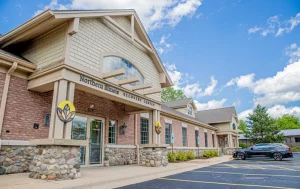 Addiction can wreak havoc on a person’s physical, emotional, and social health. People who live with addiction and those who love them suffer as the condition takes its toll. If you love someone who struggles with addiction, you might feel worried, angry, frustrated, or sad. You may wonder how to help your loved one get the treatment they need, including helping them get into a residential treatment center. It can be difficult to talk about addiction and even more challenging to accept help for their substance abuse issues. With a little preparation, you can learn how to have these difficult conversations and encourage your loved one to get the help they need to live a healthy, self-directed life free of addiction.
Addiction can wreak havoc on a person’s physical, emotional, and social health. People who live with addiction and those who love them suffer as the condition takes its toll. If you love someone who struggles with addiction, you might feel worried, angry, frustrated, or sad. You may wonder how to help your loved one get the treatment they need, including helping them get into a residential treatment center. It can be difficult to talk about addiction and even more challenging to accept help for their substance abuse issues. With a little preparation, you can learn how to have these difficult conversations and encourage your loved one to get the help they need to live a healthy, self-directed life free of addiction.
If you or someone you love require substance abuse treatment or support in addiction recovery, you are not alone. Reach out to the Northern Illinois Recovery Center staff to get information about our addiction treatment and recovery programs. To speak with an admissions counselor, call 855.786.1978 or fill out an online intake form here.
Jump to Section
What Happens in a Residential Addiction Treatment Program?
Addiction treatment usually occurs in progressive stages. First, people are evaluated by addiction and medical professionals to determine the correct course of treatment. If inpatient treatment is the right choice, your loved one will be admitted into a residential treatment program.
Medically supervised detox is often the first step of a residential program. In detox, the staff monitors and treats people for uncomfortable or dangerous symptoms of withdrawal. This allows people to have a safe, complete detox from drugs or alcohol. Once this happens, their treatment program begins.
Inpatient treatment for addiction usually involves a combination of medications, individual, group, and family therapy, holistic therapies, and education. These treatments occur in a safe, secure residential setting. Residential addiction treatment is flexible and can be offered in many settings, not only within a hospital.
Aftercare planning is an important part of addiction treatment. Making a plan to stay active in recovery after finishing treatment gives people the best chance at a meaningful recovery and lifelong sobriety.
Benefits of Inpatient Treatment
Inpatient treatment is a good option for people with severe or long-term addictions who require significant medical or mental health treatment or do not have a stable living environment. In addition to offering a safe, secure place to receive treatment, some of the benefits of inpatient treatment include:
- Access to medical and mental health professionals at all times
- Ability to focus solely on treatment without distractions of daily life
- Structure and schedule
- Support of a community of peers and staff
- Assistance with aftercare planning
Research shows that people who participate in inpatient treatment are more likely to have long-term success in recovery. For many people, a residential treatment center offers a stable place to get high-quality addiction treatment while avoiding the triggers of daily life.
How to Talk to Your Loved One About Starting an Addiction Treatment Program


Before having a conversation about addiction, educate yourself on the topic. Learn about addiction, find out local treatment options, and make sure you understand what will happen in the treatment programs you offer to your loved one. The more information you have the better prepared you will be to help them get started in a residential treatment center.
Calmly explain to your loved one that you have concerns about their substance use, and give them information about the treatment programs you have found. Encourage them to accept the help you are offering and be ready to help them if they do.
Learn More About Inpatient Treatment at Northern Illinois Recovery Center
If you or someone you love struggles with addiction, you are not alone. The Northern Illinois Recovery Program staff offer a range of supportive, flexible treatment programs that allow people to overcome addiction and learn how to live the healthy, fulfilling life they deserve. If you need life-saving treatment, do not wait another day. Call 855.786.1978 to speak with our staff or fill out an online intake form here.


Licensed Physician and Surgeon
Dr. Beth Dunlap, a board-certified addiction medicine and family medicine physician, and is the medical director at Northern Illinois Recovery Center. She is responsible for overseeing all the integrated medical services at both campuses. Beth completed medical school, residency, and fellowship at Northwestern University, where she continues to serve on the faculty as a member of the Department of Family and Community Medicine. She has extensive experience in addiction medicine at all levels of care, and her clinical interests include integrated primary care and addiction medicine, harm reduction, and medication-assisted treatment.



